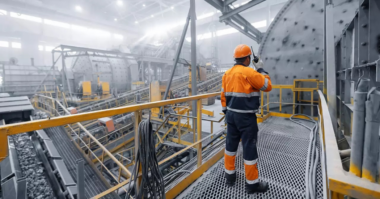

Drinking water utilities across Europe begin long-term PFAS mitigation and treatment strategies. Enforcement of the EU Drinking Water Directive’s PFAS…

Smiths Group capabilities brought together to support the first crewed mission around the Moon since Apollo John Crane, a global leader…

Factories rarely operate in clean or climate-controlled conditions. Dust, humidity, and heat are part of everyday industrial environments, and they…
A pump is an expensive piece of any water system. Maybe not the most expensive, but certainly not the least. However, only a small fraction…
Selecting the Right Bearings to Improve Vertical Turbine Pump Reliability Vertical Turbine Pumps (VTPs) are available in a variety of configurations and are used for…
Why properly understanding and differentiating between overload and overrange helps to maintain the accuracy and longevity of the torque meter. Two easily overlooked, yet extremely…
Business and operations systems are becoming increasingly integrated in the digital era. With accessible data and information, enhancing the business value of plants that utilize…